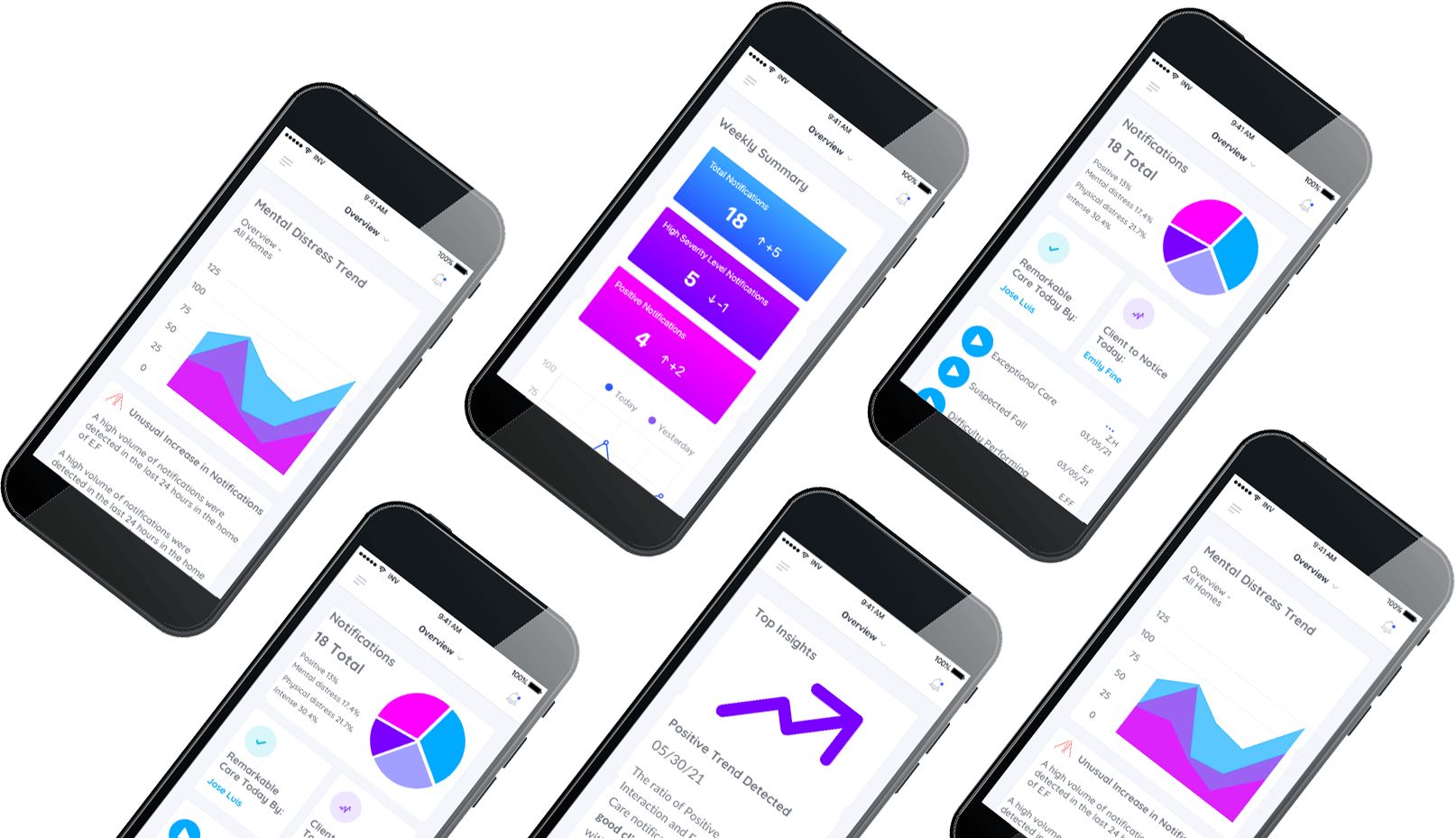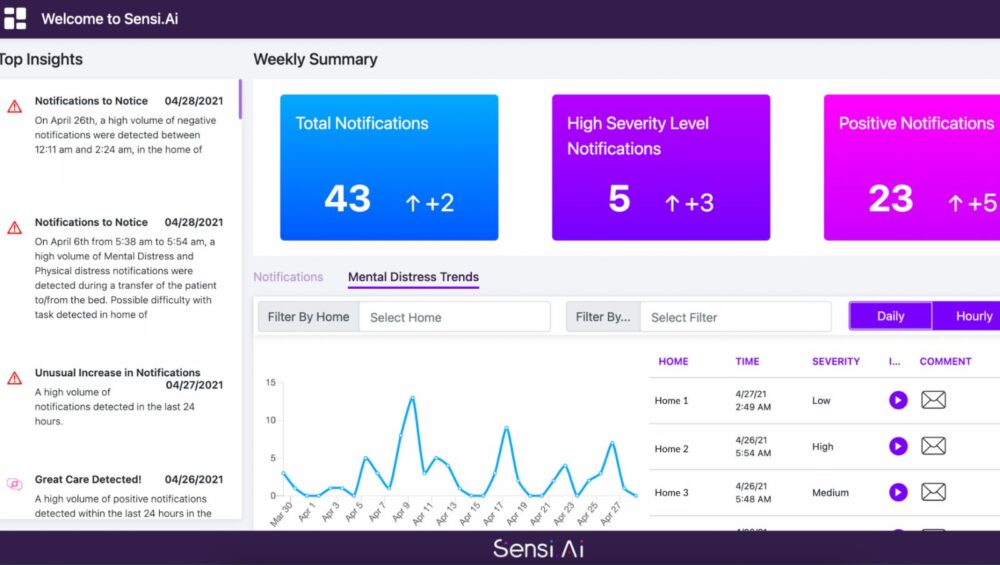Remotely monitoring patients without violating their privacy is a challenging task. But one co-founder believes that she’s cracked the code.
On a recent episode of TechCrunch Live, TC’s weekly event designed to help founders build better venture-backed businesses, Romi Gubes, the CEO of Sensi.AI, spoke about how she built a company that uses audio-based AI software to detect and predict anomalies that can impact the health of those receiving in-home care.
Romi, a software engineer by training who’s worked at Fortune 500 companies including Cisco, Dell and Vonage, says that she was inspired to found Sensi.AI after an episode of abuse in her daughter’s daycare center.
“It was one of the things in life that really changes your life,” she said. “And I wanted to leverage my technological background in order to help those vulnerable individuals be safe in any kind of care environment.”
That turned her on to the massive shortage of in-house care professionals in the U.S., as well as the effects that “aging in place” without the proper infrastructural support can have.
“As most of you know, as time goes by, there are more and more older adults and less than less younger people that can potentially take care of them,” Romi said. “Very soon, I understood how big the pain in the senior care industry is.”

Image Credits: Sensi.AI
Sensi.AI, founded in 2018, grew rather quickly, scaling today to 70 employees across two countries — the U.S. and Israel — and to customers in 37 states serving thousands of individuals. Along the way, Sensi.AI raised $25 million from investors including Sergey Gribov, a general partner at Flint Capital and a board member at Sensi.AI, who joined for the TC Live discussion.
Bolstered by the pandemic, the market for remote care monitoring solutions is quite large. So how did Sensi.AI manage to stand out from the crowd? Romi attributes it to the company’s differentiated technology, which uses a combination of AI and audio monitoring to detect key events in and around patients’ environments.
Sensi.AI spent years collecting data from the field to train its AI system. To date, the company has captured more than 10 million caregiver interactions from tens of thousands of people throughout the U.S., Romi claims.
“For example, we know to detect if a caregiver has a specific problem with transitioning the older adult from bed to the chair, where this is a huge risk factor for both of them, actually,” she explained. “We’re more focused on the prevention layer in order to really allow professionals to act before something’s happening.”
But what about privacy — both the privacy of the patients and of the caregivers?
Romi pointed out that Sensi.AI doesn’t use cameras for monitoring, unlike some of its competitors. On top of that, the system is compliant with HIPAA — the major medical records privacy bill in the U.S. — and anonymizes data so that the audio data isn’t tied to any individual being monitored.
That contributed to Sensi.AI’s funding success as well, according to Gribov. But the pandemic arguably played a larger role.
“When the pandemic hit, many caregivers weren’t able to get to the homes of the older adult and really serve them, and older adults stayed at home by themselves,” Romi said. “And this is where the need for solutions such as Sensi was very, very clear.”

Image Credits: Sensi.AI
One might assume that Sensi.AI’s grand ambition is to replace care workers entirely. But Romi asserts that this isn’t the case. In fact, she thinks it isn’t feasible from a technical standpoint — and won’t be for the foreseeable future. She hopes, rather, that Sensi.AI can grow into a care tool that clinicians — and even parents of older adults — can use to keep track of what’s going on in the home of a vulnerable patient.
“We can make their work much more efficient, and to get them make better decisions,” Romi said.
Sensi.AI and Flint Capital speak on developing and deploying AI solutions in healthcare by Kyle Wiggers originally published on TechCrunch